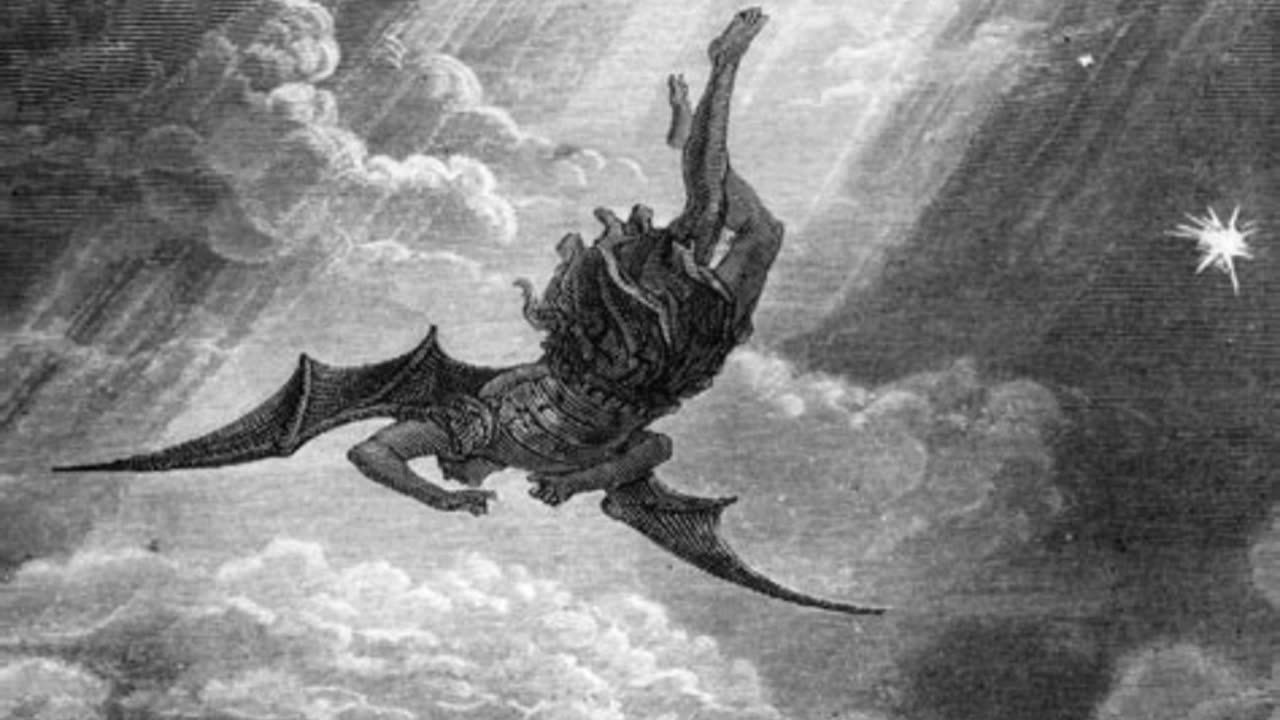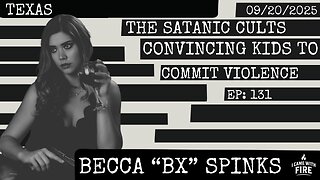Premium Only Content

Paradise Lost by: Milton
Paradise Lost is a monumental English epic poem written in blank verse (unrhymed iambic pentameter), consisting of 10 books in its original 1667 edition and expanded to 12 books in the 1674 revision. Widely considered one of the greatest works in the English language, the poem tells the biblical story of the Fall of Man, portraying the rebellion of Satan, the war in Heaven, the creation of Earth, and the temptation of Adam and Eve that led to their expulsion from the Garden of Eden.
Milton’s work reimagines these events with philosophical depth, classical influence, and rich theological inquiry. Satan emerges as a complex antihero, prideful, articulate, and driven - often stealing the spotlight with his defiant lines like “Better to reign in Hell than serve in Heaven.” Meanwhile, Adam and Eve are portrayed not simply as archetypes but as emotionally vivid characters who wrestle with love, free will, obedience, and loss.
The poem explores heavy themes such as justice, divine providence, authority, temptation, and redemption, all while questioning the nature of good and evil, human agency, and the character of God. Milton, blind and dictating his verses, weaves together classical epic tradition with Protestant theology, creating a synthesis that both honors and challenges biblical interpretation.
About the Author:
John Milton (1608–1674) was an English poet, intellectual, and civil servant whose work left a profound mark on literature, politics, and theology. Best known for his epic Paradise Lost, Milton was a master of classical forms and biblical themes, blending them into works of stunning poetic depth and philosophical rigor.
Educated at Christ’s College, Cambridge, Milton was fluent in Latin, Greek, Hebrew, and several modern languages. A staunch advocate for liberty, he wrote powerful political tracts defending freedom of speech (Areopagitica, 1644), republicanism, and the right to divorce. During the English Civil War, he aligned with the Puritans and served as Secretary for Foreign Tongues under Oliver Cromwell’s Commonwealth, handling diplomatic correspondence in Latin.
Milton went completely blind in 1652 but continued to write by dictation, including his greatest masterpiece, Paradise Lost (published in 1667, revised in 1674). He followed it with Paradise Regained and Samson Agonistes. His work reflects deep engagement with theology, politics, classical literature, and the human struggle between reason, faith, and temptation.
Milton’s personal life was marked by tragedy, he lost his sight, two wives, and several children - but his legacy is enduring. He was both a devout Christian and a fierce individualist, whose influence shaped writers from Blake and Wordsworth to Tolkien and Borges. His command of language and vision of cosmic justice continue to challenge and inspire readers centuries later.
-
 1:16:34
1:16:34
Deus Meum Que Jus
1 month agoWalter Martin - Occult New Age Movement
430 -
 6:11:36
6:11:36
Grant Cardone
6 hours agoGrant Cardone LIVE: The 10X Truth That Made My First $1 Million In Real Estate
34.4K4 -
 2:28:37
2:28:37
putther
3 hours ago $1.21 earned⭐ Bounty Hunting on GTA⭐
20.8K1 -
 LIVE
LIVE
Total Horse Channel
1 day agoAMHA 2025 9/20
558 watching -
 1:53:15
1:53:15
I_Came_With_Fire_Podcast
15 hours agoThe Satanic Cults Convincing Kids to Commit Violence
52.5K17 -
![Mr & Mrs X - [DS] Created Antifa To Push An Insurgency In This Country - Ep 8](https://1a-1791.com/video/fww1/f9/s8/1/k/f/O/j/kfOjz.0kob-small-Mr-and-Mrs-X-DS-Created-Ant.jpg) 1:02:13
1:02:13
X22 Report
8 hours agoMr & Mrs X - [DS] Created Antifa To Push An Insurgency In This Country - Ep 8
160K56 -
 1:13:24
1:13:24
Wendy Bell Radio
12 hours agoPet Talk With The Pet Doc
58.2K44 -
 1:19:30
1:19:30
Game On!
1 day ago $12.04 earnedCollege Football Week 4 Betting Preview!
160K5 -
 26:04
26:04
Artur Stone Garage
4 days ago $2.94 earned$500 Civic: Will It EVER Drive Without Breaking Down?
43.1K17 -
 31:44
31:44
SouthernbelleReacts
2 days ago $4.43 earned“E.T. Phone Home! 🛸 Emotional Mom Style Reaction to E.T. the Extra-Terrestrial (1982)”
56.3K6